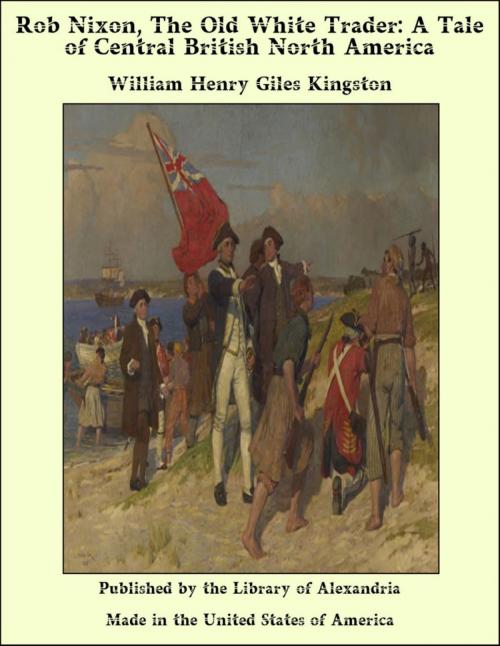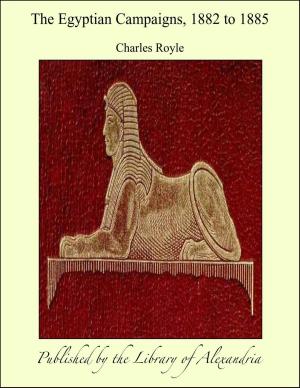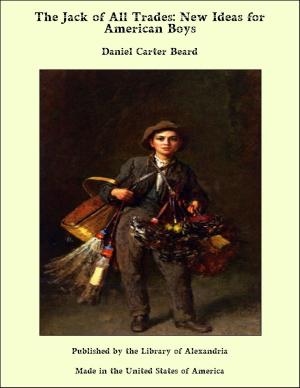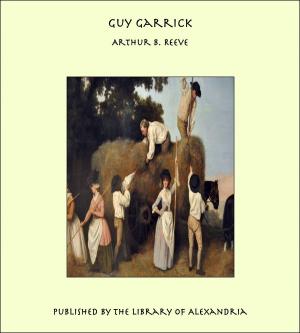Rob Nixon, The Old White Trader: A Tale of Central British North America
Nonfiction, Religion & Spirituality, New Age, History, Fiction & Literature| Author: | William Henry Giles Kingston | ISBN: | 9781465596512 |
| Publisher: | Library of Alexandria | Publication: | March 8, 2015 |
| Imprint: | Language: | English |
| Author: | William Henry Giles Kingston |
| ISBN: | 9781465596512 |
| Publisher: | Library of Alexandria |
| Publication: | March 8, 2015 |
| Imprint: | |
| Language: | English |
Picture a wide, gently undulating expanse of land covered with tall grass, over which, as it bends to the breeze, a gleam of light ever and anon flashes brightly. It is a rolling prairie in North America, midway between the Atlantic and Pacific Oceans. On either hand the earth and sky seem to unite, without an object to break the line of the horizon, except in the far distance, where some tall trees, by a river’s side, shoot up out of the plain, but appear no higher than a garden hedge-row. It is truly a wilderness, which no wise man would attempt to traverse without a guide. That man has wandered there, the remnants of mortality which lie scattered about—a skull and the bare ribs seen as the wind blows the grass aside,—afford melancholy evidence. A nearer inspection shows a rifle, now covered with rust, a powder-flask, a sheath-knife, a flint and steel, and a few other metal articles of hunter’s gear. Those of more destructible materials have disappeared before the ravenous jaws of the hosts of locusts which have swept over the plain. Few portions of the earth’s surface give a more complete idea of boundless extent than the American prairie. Not a sound is heard. The silence itself is awe-inspiring. The snows of winter have lain thickly on that plain, storms have swept over it, the rain has fallen, the lightning flashed, the thunder roared, since it has been trodden by the foot of man. Perhaps the last human being who has attempted to cross it was he whose bones lie blanching in the summer sun—that sun which now, having some time passed its meridian height, is sinking towards the west.
Picture a wide, gently undulating expanse of land covered with tall grass, over which, as it bends to the breeze, a gleam of light ever and anon flashes brightly. It is a rolling prairie in North America, midway between the Atlantic and Pacific Oceans. On either hand the earth and sky seem to unite, without an object to break the line of the horizon, except in the far distance, where some tall trees, by a river’s side, shoot up out of the plain, but appear no higher than a garden hedge-row. It is truly a wilderness, which no wise man would attempt to traverse without a guide. That man has wandered there, the remnants of mortality which lie scattered about—a skull and the bare ribs seen as the wind blows the grass aside,—afford melancholy evidence. A nearer inspection shows a rifle, now covered with rust, a powder-flask, a sheath-knife, a flint and steel, and a few other metal articles of hunter’s gear. Those of more destructible materials have disappeared before the ravenous jaws of the hosts of locusts which have swept over the plain. Few portions of the earth’s surface give a more complete idea of boundless extent than the American prairie. Not a sound is heard. The silence itself is awe-inspiring. The snows of winter have lain thickly on that plain, storms have swept over it, the rain has fallen, the lightning flashed, the thunder roared, since it has been trodden by the foot of man. Perhaps the last human being who has attempted to cross it was he whose bones lie blanching in the summer sun—that sun which now, having some time passed its meridian height, is sinking towards the west.















